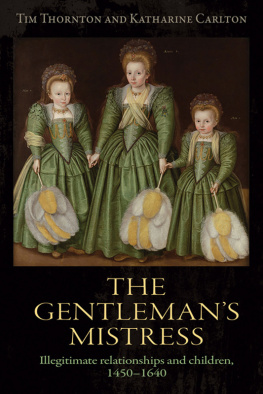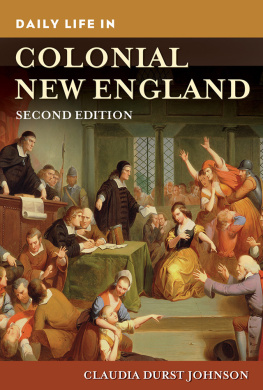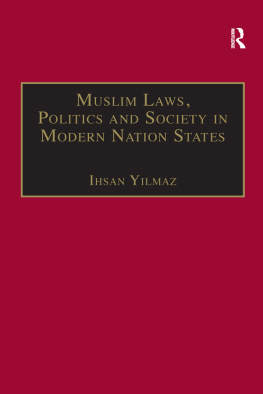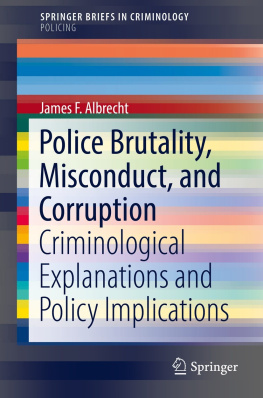First published 2015 by Ashgate Publishing
Published 2016 by Routledge
2 Park Square, Milton Park, Abingdon, Oxon OX14 4RN
711 Third Avenue, New York, NY 10017, USA
Routledge is an imprint of the Taylor & Francis Group, an informa business
Copyright Abby Chandler 2015
Abby Chandler has asserted her right under the Copyright, Designs and Patents Act, 1988, to be identified as the author of this work.
All rights reserved. No part of this book may be reprinted or reproduced or utilised in any form or by any electronic, mechanical, or other means, now known or hereafter invented, including photocopying and recording, or in any information storage or retrieval system, without permission in writing from the publishers.
Notice:
Product or corporate names may be trademarks or registered trademarks, and are used only for identification and explanation without intent to infringe.
British Library Cataloguing in Publication Data
A catalogue record for this book is available from the British Library
The Library of Congress has cataloged the printed edition as follows:
Chandler, Abby, 1974- author.
Law and sexual misconduct in New England, 1650-1750 : steering toward England / by Abby Chandler.
pages cm
Based on authors thesis (doctoral - University of Maine, 2008) issued under title: At the magistrates discretion : sexual crime and New England law, 1636-1718.
Includes bibliographical references and index.
ISBN 978-1-4724-6192-6 (hardcover) ISBN 978-1-3155-9151-3 (ebook) ISBN 978-1-3171-0779-8 (epub) 1. Sex and lawNew EnglandHistory17th century. 2. Sex and lawNew EnglandHistory18th century. 3. Sex crimesNew EnglandHistory17th century. 4. Sex crimesNew EnglandHistory18th century. 5. LawNew EnglandEnglish influencesHistory17th century. 6. LawNew EnglandEnglish influencesHistory18th century. 7. New EnglandHistoryColonial period, ca. 1600-1775 I. Title.
KF9325.C43 2015
345.74'025309032dc23
2015019032
ISBN 9781472461926 (hbk)
ISBN 9781315591513 (ebk-PDF)
ISBN 9781317107798 (ebk-ePUB)
Preface
Studying a historical subject in the places where it occurred comes with particular benedictions. My understanding of the landscape which has long surrounded my life has changed in the past 10 years as street names and gravestones came to hold the personalities of the families for whom they were named in the seventeenth and eighteenth centuries. Much of this book was composed on Osgood Street in North Andover, Massachusetts, which was named for the family who tangled most often with my own ancestors in the court rooms of Essex County.
More striking still was the discovery of the Chebacco graveyard, which lies a few yards away from a busy road in Essex, Massachusetts. Debora Proctor, whom you will meet later in this book, was unable to persuade the Essex County court system to convict Thomas Choat on charges that he had molested her daughter. One of the Chebacco gravestones announces that Here lyes buried/the Body of Capt. Thomas Choate/Died March Ye 31st/in 1745/ in ye 74th year of his age. The stone for his wife, Mary Choat, stands next to it, along with their children and grandchildren. Forming a wider circle around the Choat gravestones are stones for the Burnham and Cogswell families, as connected in the New England landscape as their depositions were connected in the Proctor/Choat trial of 1705.
The court records which bring these stories to life are held in archives across New England and I am grateful to all the librarians and archivists who found them for me. I would especially like to thank The American Antiquarian Society, The Andover Historical Society, The Bangor Public Library, The Ipswich Historical Society, Tammy Marks at The Maine State Archives, Elizabeth Bouvier at The Massachusetts State Archives, The New England Historic and Genealogical Society, The Phillips Library at the Peabody-Essex Museum, and Andrew Smith at The Rhode Island Judicial Archives.
No major research project is ever completed without funding and I wish to acknowledge the following grants: The Phillips Library Research Fellowship from the Peabody-Essex Museum, and both the Charles J. Dunn Dissertation Research Grant and the University Graduate Research Fellowship from the University of Maine. I also wish to thank the University of Massachusetts Lowell who funded the research trips necessary for expanding my original dissertations time frame of 16361718 to the books time frame of 16501750.
I am equally grateful for all the feedback I have received while presenting my research at conferences hosted by The British Group in Early American History, The Massachusetts Historical Society, The New England Historical Association, The Omohundro Institute of Early American History and Culture, The Society of Early Americanists, and The Society for the Study of Early Modern Women. I particularly wish to thank Mary Sarah Bilder for inviting me to talk about my research at the Boston College Legal History Roundtable, and Rose Doherty and Will Holton for inviting me to talk at the Boston Charter Day celebration and for welcoming me into the community of The Partnership for the Historic Bostons.
Other responses have come my way as this book has made its way into print. Portions of the book were derived from an article titled And the author of wickedness Surely is most to be blamed: The Deposition of Debora Proctor in Legacy: A Journal of American Women Writers and articles titled Incontinent Practices: Women, Language and Sexual Crime Trials in Colonial Maine and From Birthing Chamber to Court Room: The Medical and Legal Communities of the Colonial Essex County Midwife in Early Modern Women: An Interdisciplinary Journal. I also wish to thank Tom Gray at Ashgate Press both for his interest in my book and for his suggestion of the anonymous reader whose ideas led to a complete restructuring of the book manuscript in the summer of 2014.
I began teaching at the University of Massachusetts Lowell in the fall of 2010 and have been blessed ever since with many people who share my love of history, whether as written documents or historical objects. Kate DiTullio reminds me why we teach and what we pass on to our students as they become teachers themselves, while Marc Fountain reminds me of the worlds outside my classrooms, historic or otherwise. Dan Sweeney has read every single word of this book and, more importantly, has thought about every word in this book. I also wish to thank Michael Pierson, Christoph Strobel, Joe Lipchitz, Lisa Edwards, and the rest of the UMass Lowell History department, who are the best of colleagues and mentors and whose office doors are always open when needed.
Like many first books, this particular volume began as a dissertation at the University of Maine and I again wish to thank Liam Riordan and the rest of my dissertation committee, William TeBrake, Martha McNamara, Mazie Hough, and Stephen Miller, for all their feedback and support.
Graduate school for me began at the University of Massachusetts in the fall of 2000. While my studies in Amherst produced the initial questions which drew me to colonial New Englands sexual misconduct trials, I also made friends who still widen my world on a daily basis. For over a decade, Bree Beal has read drafts, asked questions, listened to stories, and, most importantly, made the 3,000 miles between Massachusetts and Oregon feel like no distance at all.







